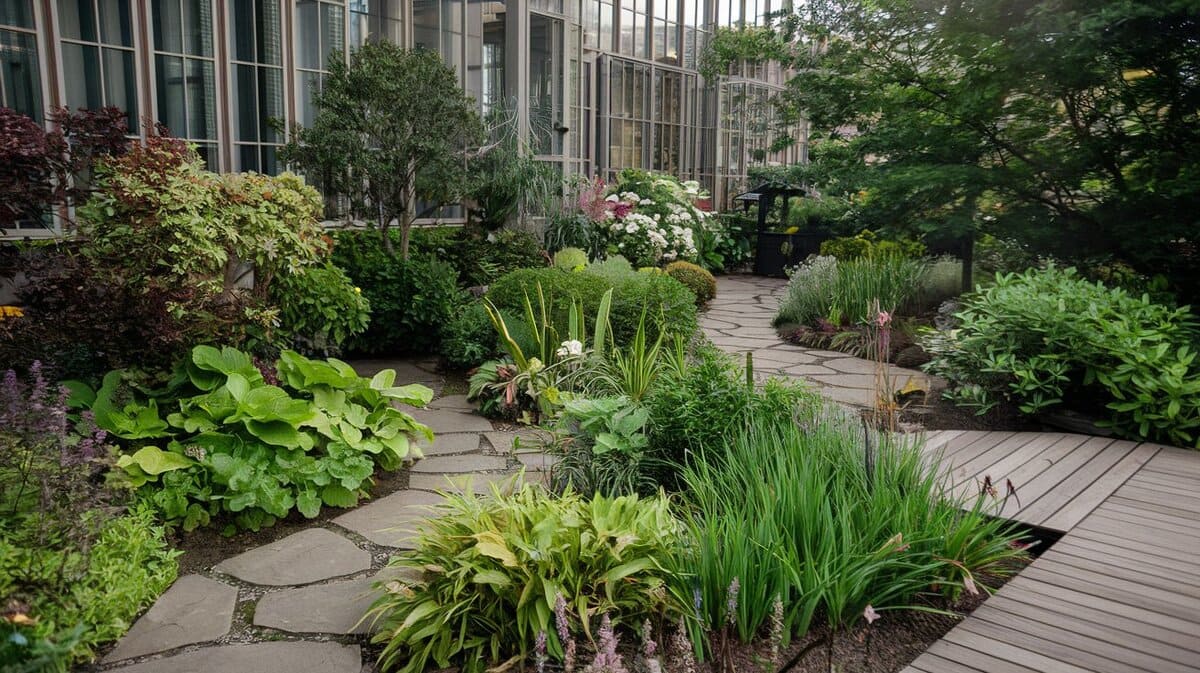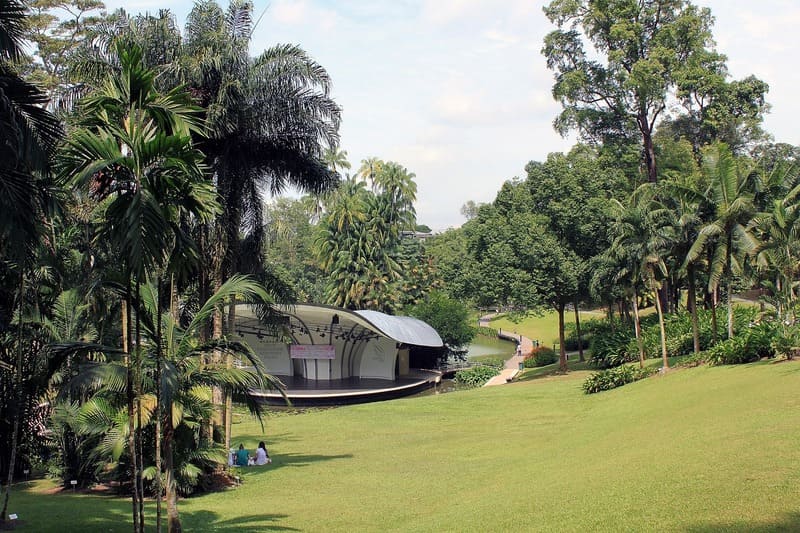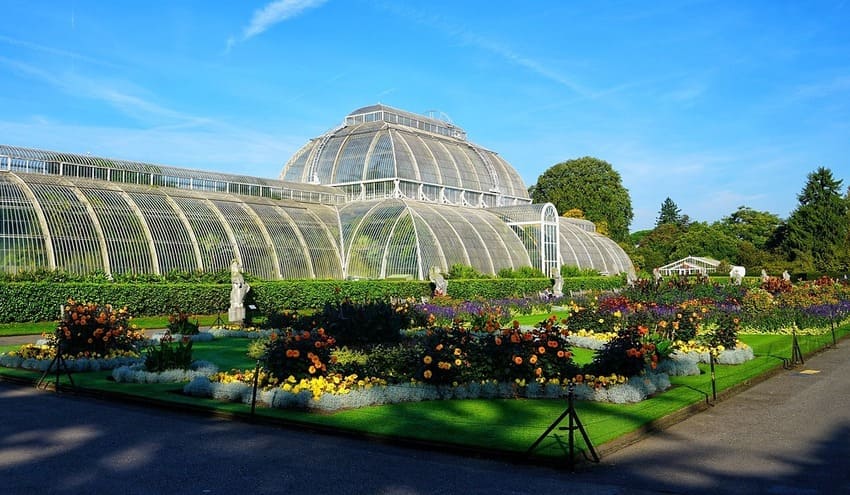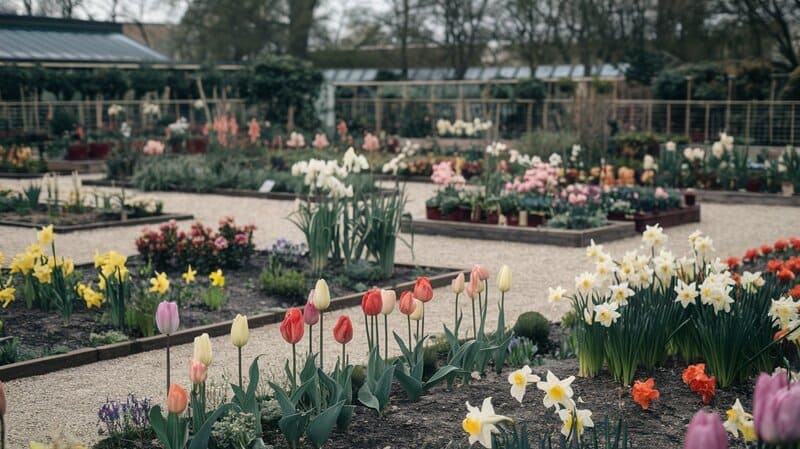
Botanical gardens are not just a beautiful scenery; they are the important cornerstones for such fundamental aspects as the existence of plants, their protection and study.
Here, the author offers a closer look at such issues as the history of botanical gardens, their contribution to the matters of sustainability, and their function in education processes.
What Are Botanical Gardens?
A botanical garden is a well kept garden, which contains a large collection of plants maintained for scientific and educational purposes and the plants are always labeled scientifically. These gardens are of varied uses- research, conservation, education and recreational where the visitors get to enjoy a world of flowers.

The History of Botanical Gardens :
Plants of botanical Public garden are as old as the history of civilization and the first botanical gardens were established in the Mediterranean area.
In the Renaissance Europeans started to import new plants and thus garden with the intended purpose of studying and classifying plants were created in Europe.
Botanical garden: The first official botanical garden Orto Botanica di Padova in Italy was established in the year 1545 for all the botanical gardens around the world.
The Role of Botanical Gardens in Conservation :
A primary social responsibility that is served by botanical gardens is that of preserving the endangered plant species as well as increasing the plant diversity. It can be seen that they serve as the living deposit of a number of plants that can be endangered in their usual environment.
Some of the plant museums take an active role in world conservation processes serving as the base for the rebuilding of the natural habitats of plants and acting as producers of information regarding the need for conservation of plants.
Famous Botanical Gardens Around the World :

Some of the most renowned botanical gardens include:
Kew Gardens, London:
A dwelling place of many plants with the site being recognized as the world heritage site by UNESCO.
Royal Botanic Garden, Sydney:
Famous for its splendid water front and the lavish variety of plants contain in it.
Singapore Botanic Gardens:
One of the UNESCO World Heritage site that is known for its orchid site.
Brooklyn Botanic Garden, New York:
This museum is famous for its cherry blossom festival and educational programs is a famous.
The Benefits of Visiting Botanical Gardens :
Visiting botanical gardens offers numerous benefits, including:
- Mental Well-Being:
It is clear that time spent out in nature diminishes stress, and improves the mood.
- Educational Opportunities:
This shows that gardens are ideal centers for teaching the students on botany, ecology as well as sustainability.
- Community Engagement:
It is not uncommon to find out that many gardens contain programs and activities which are intended for community participation and environmental conservation.
How Botanical Gardens Preserve Rare Plants :

Botanical gardens play a vital role in conserving rare plants through various methods:
- 1.Ex-Situ Conservation: Rearing special breeds in a different environment in order not to be wiped out form the face of the earth.
- 2.Seed Banks: Smart preservation of seeds so as to maximize on germination capacity as well as genetic variation.
- 3.Tissue Culture: Employing micro propagation technique in the vegetative propagation of plants thus leading to better and the creation of disease-free clones.
- 4. Education and Research: Considering experiments that focuses on rare plant species in order to improve methods of plant protection and to train specialists.
- 5. Habitat Restoration: To an extent, this may involve such activities as; Reestablishment of ecosystems and return of cultivated plants to their natural habitats while controlling invasive species.
- 6. Collaborations: Collaboration and sharing of resource and practice with other organization and networks in the course of conservation.
- 7. Public Engagement: Popularizing plant conservation with the help of campaigns, shows, lectures, projects and other activities among communities and different organizations.
In this way, botanical gardens are crucial for the conservation of bio-diversity and the increase in concern for ecological well being of our environment.
Educational Programs Offered by Botanical Gardens :

Many botanical gardens offer a variety of educational programs, including:
- Workshops and Classes: Including such issues as the proper way of treating the plants and practicing environmentally friendly gardening.
- Guided Tours: They therefore serve to offer information to plant collections as well as their ecological contribution.
- School Programs: Students can sometimes get particularly intrigued with lessons that have practical activities in regards to plants’ biology and their conservation.
Sustainable Practices in Botanical Gardens :
Taking responsibility and preserving the environment while representing a cultura event is a priority for most botanical gardens. They implement practices such as:
- Water Conservation: Using rain water conservation and water saving plants and other vegetation.
- Organic Gardening: Not using synthesizing pesticides and fertilizers in our farming process.
- Habitat Restoration: Continued development of plans aimed at rehabilitation of indigenous environments and support of indigenous plants.
Seasonal Events and Festivals in Botanical Gardens :
Botanical gardens often host seasonal events and festivals that celebrate plant life, such as:
- Flower Shows: Gardening and beautiful flowers are the popular attractions that display numerous floral arrangements and methods of cultivation.
- Harvest Festivals:Emphasizing of sustainable agriculture.
- Holiday Lights Displays: Superimposing new aesthetics on garden spaces and turning them into fond reminiscence of winter.

The Future of Botanical Gardens: Trends and Innovations :
Botanical gardens are evolving through several key trends and innovations:
- Technology Integration: Mobile applications as well as augmented reality make the visits of the visitors as well as botanical education more appealing and captivating.
- Citizen Science Initiatives: Plant health and the control of invasive species with the assistance of the public.
- Climate Resilience: Climate resistant population and bringing awareness and using sustainable efforts to counter climate change.
- Urban Greening: Supporting of the local gardening and green systems in towns and cities.
- Enhanced Educational Programming: Making available workshops and continue learning opportunities to increase reach and awareness.
- Mental Health Focus: Offering well-being therapy spaces and curating LTL programs where nature is the main focus.
- Collaborations and Global Networks: Collaborating with other organizations in order to reinforce supply chain conservation.
- Biodiversity Emphasis: Participation in seed swap and study on the threatened species.
Thus, by adopting those trends, botanical gardens will continue to serve as centers of conservation, education, and community involved in creating a sustainable environment.
"This content is useful - share it on social media!"

